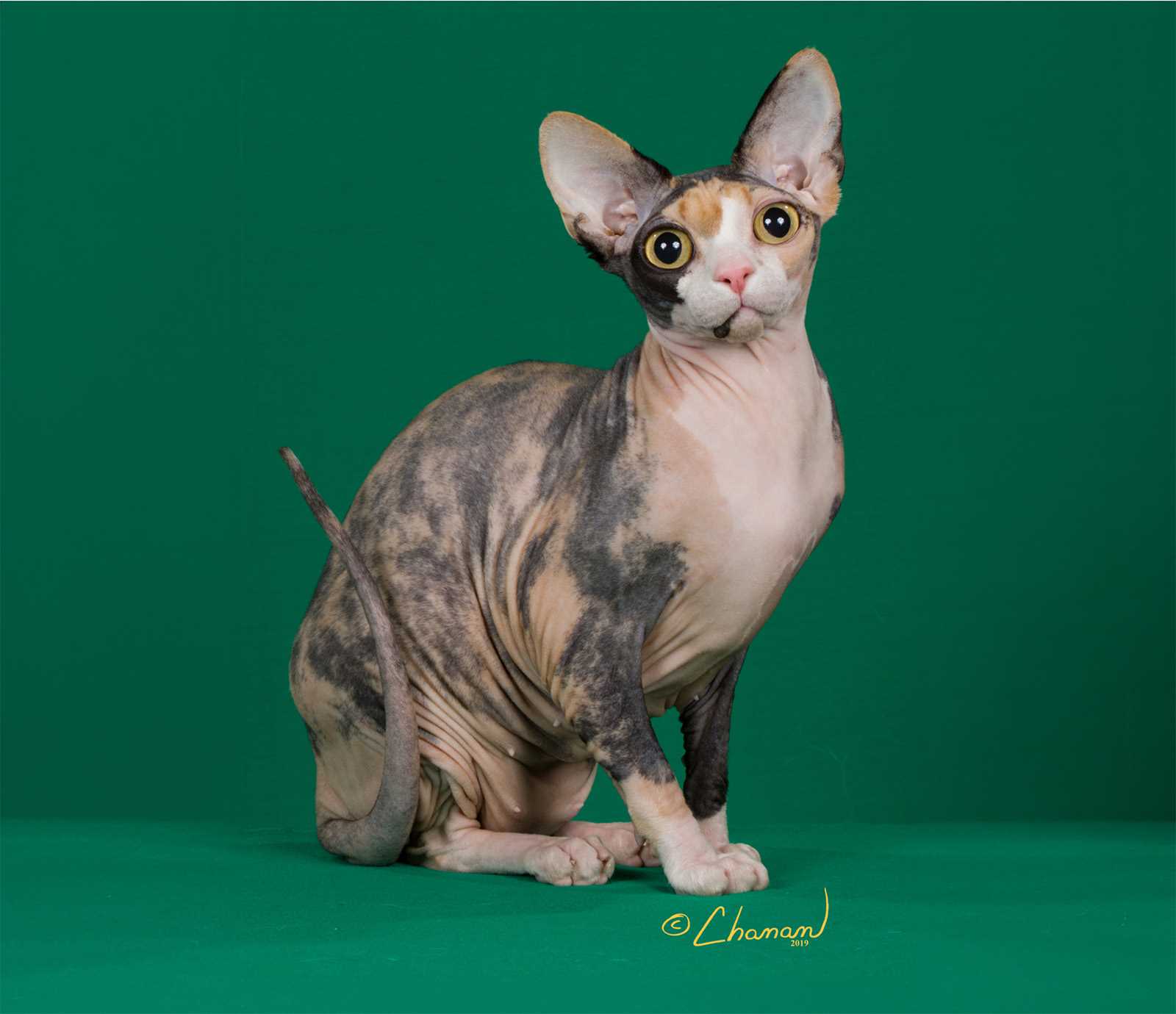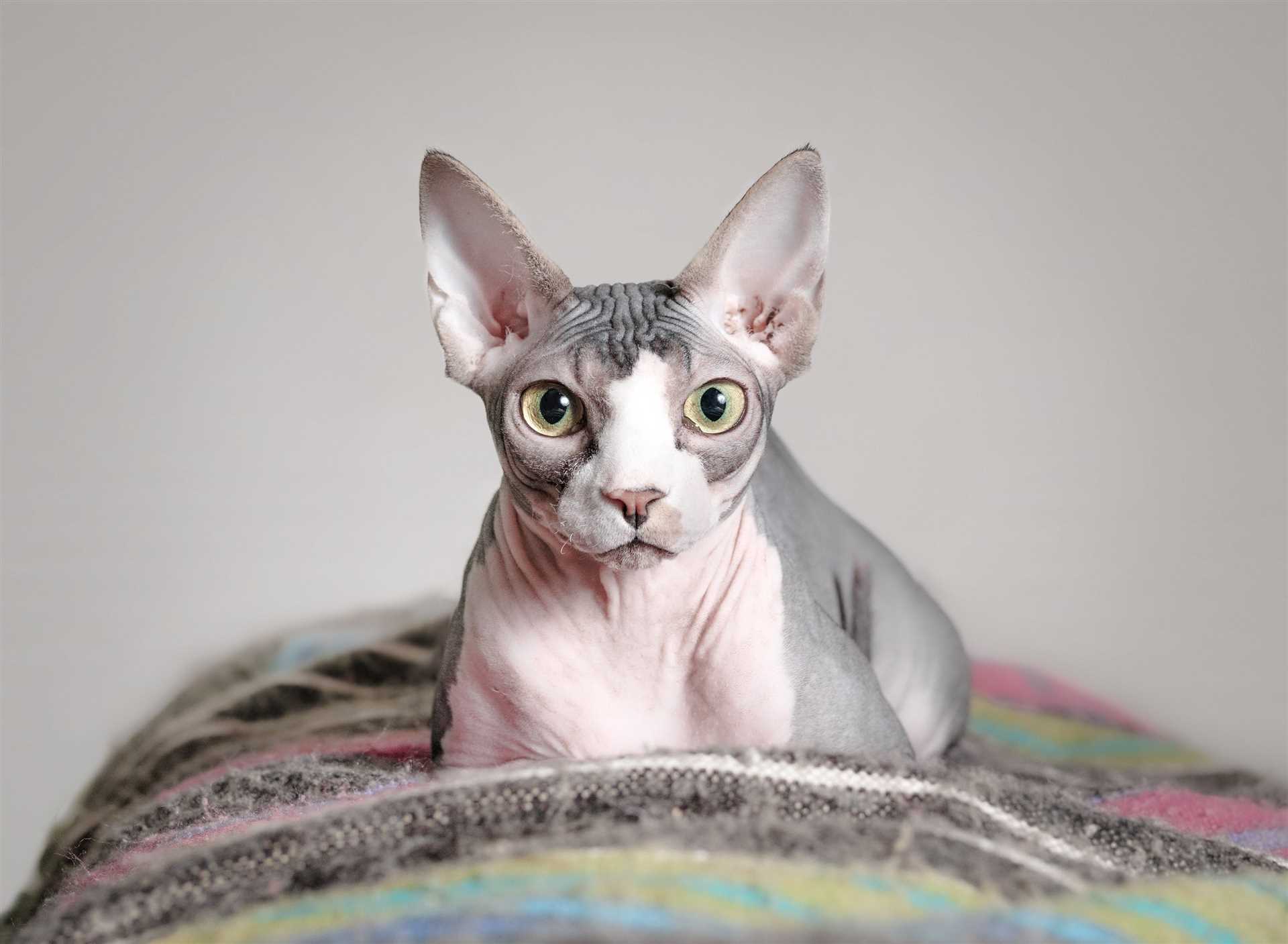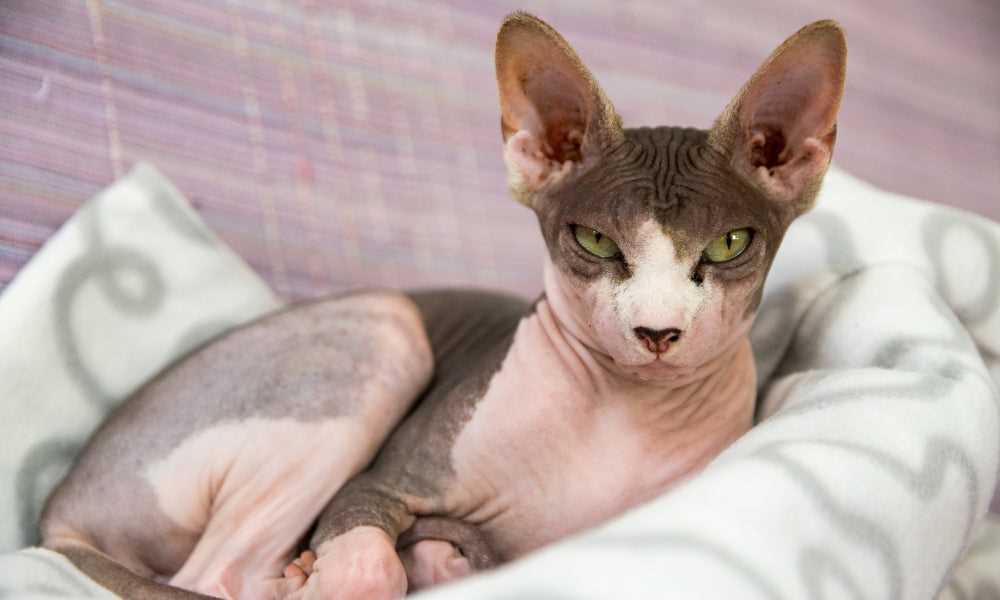



Investing in a hairless companion can require an initial outlay ranging from $1,500 to $3,000. This price varies based on factors like breeder reputation, lineage, and geographic location. If you’re looking for an exceptional specimen, be prepared to allocate a higher budget.
Beyond the initial purchase price, ongoing expenses should be factored in. Routine veterinary care, including vaccinations and annual check-ups, typically amounts to around $300 to $500 annually. Additionally, specialized grooming products and dietary needs may add another $200 to $400 per year, ensuring your pet remains healthy and comfortable.
Consider the costs of pet insurance, which can range from $20 to $50 monthly, providing peace of mind against unexpected health issues. Always account for potential emergency expenses that could arise, which can significantly impact your budget.
Costs Associated with Acquiring a Hairless Companion
If you’re considering welcoming one of these unique beings into your home, prepare for an initial investment ranging from $1,500 to $3,000. Prices fluctuate based on factors like breeder reputation, location, and lineage. Purebred kittens tend to command higher prices, especially those with award-winning ancestry.
Beyond the purchase price, ongoing expenses are significant. Regular vet visits, vaccinations, and preventive care can cost around $200 to $500 annually. Don’t forget about grooming needs; although their lack of fur reduces shedding, they require regular baths and skincare, which can add up to $150 or more each year.
Additional Financial Considerations
Food costs typically run between $30 to $60 monthly, depending on dietary preferences and brand choices. If your new friend has specific health conditions or dietary restrictions, this could increase. Furthermore, supplies like litter, toys, and scratching posts should also be factored into your budget, averaging around $20 to $50 monthly.
Training and socialization expenses can emerge as well. Some owners may find it beneficial to invest in behavior classes or consult with professionals, especially if they notice issues such as their new friend being resistant to being held. For insights on this, check out why does my cat not like to be held. This could help you understand their needs better.
In summary, while the initial price tag may seem steep, the ongoing costs of care are equally important to consider when bringing one of these charming creatures into your life.
Initial Purchase Price of a Sphynx Feline
For anyone considering bringing a hairless companion into their home, the initial financial commitment typically ranges from $1,500 to $3,000. This figure is influenced by several factors, including the cat’s lineage, breeder reputation, and geographical location.
When selecting a reputable breeder, it’s crucial to conduct thorough research. Breeders who prioritize health testing and responsible breeding practices may charge more, but their cats often come with health guarantees, reducing future veterinary expenses.
Additionally, kittens from championship bloodlines or those with unique color patterns may fetch higher prices. These distinctions not only enhance the aesthetic appeal but also contribute to their value in breeding circles.
It’s advisable to account for the costs associated with adopting a hairless feline from a shelter or rescue organization as well. While the initial fee may be lower, potential future expenses for health care should be considered.
In summary, investing in a hairless companion involves careful budgeting. The initial purchase price is just the beginning, as ongoing care and attention will also play a significant role in your financial planning.
Ongoing Costs of Caring for a Sphynx

Monthly expenses for my friend are around $100 to $200. This includes high-quality food, litter, and regular vet check-ups. The unique needs of this breed can affect the budget significantly.
Dietary Needs
High-protein diets are essential for maintaining energy levels and skin health. Premium dry or wet food can cost between $30 and $70 monthly. Special formulas may be required for specific health issues.
Grooming and Health Care

Regular baths are necessary to manage oil build-up on the skin, costing around $20 to $50 per month for grooming products. Vet visits for vaccinations and check-ups add another $50 to $100 annually. Additionally, budgeting for potential health issues is wise, as certain conditions may arise, leading to unexpected veterinary expenses.
Factors Influencing the Price of Sphynx Cats
The overall cost of these hairless companions varies significantly based on several key elements. Understanding these factors can help potential owners make informed decisions.
1. Breeder Reputation
Choosing a reputable breeder is crucial. Established breeders often charge more due to their commitment to health testing, genetic screening, and ethical breeding practices. This ensures a healthier kitten.
2. Pedigree and Lineage

- Show-quality cats with championship bloodlines typically command higher prices.
- Unique markings or features can also influence pricing, as they may be more sought after.
3. Location
Prices can vary based on geographic location. Urban areas with higher demand often see increased costs compared to rural settings.
4. Health and Wellness
Kittens that come with vaccinations, microchipping, and health guarantees may have higher initial costs. Investing in health now can save on future vet bills.
5. Additional Supplies
- Initial investment in supplies like litter boxes, scratching posts, and bedding adds to the overall cost.
- Specific dietary needs or health supplements, like the best immune support for cats, can also impact your budget.
Being aware of these factors helps you prepare for both the initial and ongoing expenses associated with bringing a new family member into your home.
Investing in a hairless companion can require an initial outlay ranging from $1,500 to $3,000. This price varies based on factors like breeder reputation, lineage, and geographic location. If you’re looking for an exceptional specimen, be prepared to allocate a higher budget.
Beyond the initial purchase price, ongoing expenses should be factored in. Routine veterinary care, including vaccinations and annual check-ups, typically amounts to around $300 to $500 annually. Additionally, specialized grooming products and dietary needs may add another $200 to $400 per year, ensuring your pet remains healthy and comfortable.
Consider the costs of pet insurance, which can range from $20 to $50 monthly, providing peace of mind against unexpected health issues. Always account for potential emergency expenses that could arise, which can significantly impact your budget.
Costs Associated with Acquiring a Hairless Companion
If you’re considering welcoming one of these unique beings into your home, prepare for an initial investment ranging from $1,500 to $3,000. Prices fluctuate based on factors like breeder reputation, location, and lineage. Purebred kittens tend to command higher prices, especially those with award-winning ancestry.
Beyond the purchase price, ongoing expenses are significant. Regular vet visits, vaccinations, and preventive care can cost around $200 to $500 annually. Don’t forget about grooming needs; although their lack of fur reduces shedding, they require regular baths and skincare, which can add up to $150 or more each year.
Additional Financial Considerations
Food costs typically run between $30 to $60 monthly, depending on dietary preferences and brand choices. If your new friend has specific health conditions or dietary restrictions, this could increase. Furthermore, supplies like litter, toys, and scratching posts should also be factored into your budget, averaging around $20 to $50 monthly.
Training and socialization expenses can emerge as well. Some owners may find it beneficial to invest in behavior classes or consult with professionals, especially if they notice issues such as their new friend being resistant to being held. For insights on this, check out why does my cat not like to be held. This could help you understand their needs better.
In summary, while the initial price tag may seem steep, the ongoing costs of care are equally important to consider when bringing one of these charming creatures into your life.
Initial Purchase Price of a Sphynx Feline
For anyone considering bringing a hairless companion into their home, the initial financial commitment typically ranges from $1,500 to $3,000. This figure is influenced by several factors, including the cat’s lineage, breeder reputation, and geographical location.
When selecting a reputable breeder, it’s crucial to conduct thorough research. Breeders who prioritize health testing and responsible breeding practices may charge more, but their cats often come with health guarantees, reducing future veterinary expenses.
Additionally, kittens from championship bloodlines or those with unique color patterns may fetch higher prices. These distinctions not only enhance the aesthetic appeal but also contribute to their value in breeding circles.
It’s advisable to account for the costs associated with adopting a hairless feline from a shelter or rescue organization as well. While the initial fee may be lower, potential future expenses for health care should be considered.
In summary, investing in a hairless companion involves careful budgeting. The initial purchase price is just the beginning, as ongoing care and attention will also play a significant role in your financial planning.
Ongoing Costs of Caring for a Sphynx

Monthly expenses for my friend are around $100 to $200. This includes high-quality food, litter, and regular vet check-ups. The unique needs of this breed can affect the budget significantly.
Dietary Needs
High-protein diets are essential for maintaining energy levels and skin health. Premium dry or wet food can cost between $30 and $70 monthly. Special formulas may be required for specific health issues.
Grooming and Health Care

Regular baths are necessary to manage oil build-up on the skin, costing around $20 to $50 per month for grooming products. Vet visits for vaccinations and check-ups add another $50 to $100 annually. Additionally, budgeting for potential health issues is wise, as certain conditions may arise, leading to unexpected veterinary expenses.
Factors Influencing the Price of Sphynx Cats
The overall cost of these hairless companions varies significantly based on several key elements. Understanding these factors can help potential owners make informed decisions.
1. Breeder Reputation
Choosing a reputable breeder is crucial. Established breeders often charge more due to their commitment to health testing, genetic screening, and ethical breeding practices. This ensures a healthier kitten.
2. Pedigree and Lineage

- Show-quality cats with championship bloodlines typically command higher prices.
- Unique markings or features can also influence pricing, as they may be more sought after.
3. Location
Prices can vary based on geographic location. Urban areas with higher demand often see increased costs compared to rural settings.
4. Health and Wellness
Kittens that come with vaccinations, microchipping, and health guarantees may have higher initial costs. Investing in health now can save on future vet bills.
5. Additional Supplies
- Initial investment in supplies like litter boxes, scratching posts, and bedding adds to the overall cost.
- Specific dietary needs or health supplements, like the best immune support for cats, can also impact your budget.
Being aware of these factors helps you prepare for both the initial and ongoing expenses associated with bringing a new family member into your home.
Investing in a hairless companion can require an initial outlay ranging from $1,500 to $3,000. This price varies based on factors like breeder reputation, lineage, and geographic location. If you’re looking for an exceptional specimen, be prepared to allocate a higher budget.
Beyond the initial purchase price, ongoing expenses should be factored in. Routine veterinary care, including vaccinations and annual check-ups, typically amounts to around $300 to $500 annually. Additionally, specialized grooming products and dietary needs may add another $200 to $400 per year, ensuring your pet remains healthy and comfortable.
Consider the costs of pet insurance, which can range from $20 to $50 monthly, providing peace of mind against unexpected health issues. Always account for potential emergency expenses that could arise, which can significantly impact your budget.
Costs Associated with Acquiring a Hairless Companion
If you’re considering welcoming one of these unique beings into your home, prepare for an initial investment ranging from $1,500 to $3,000. Prices fluctuate based on factors like breeder reputation, location, and lineage. Purebred kittens tend to command higher prices, especially those with award-winning ancestry.
Beyond the purchase price, ongoing expenses are significant. Regular vet visits, vaccinations, and preventive care can cost around $200 to $500 annually. Don’t forget about grooming needs; although their lack of fur reduces shedding, they require regular baths and skincare, which can add up to $150 or more each year.
Additional Financial Considerations
Food costs typically run between $30 to $60 monthly, depending on dietary preferences and brand choices. If your new friend has specific health conditions or dietary restrictions, this could increase. Furthermore, supplies like litter, toys, and scratching posts should also be factored into your budget, averaging around $20 to $50 monthly.
Training and socialization expenses can emerge as well. Some owners may find it beneficial to invest in behavior classes or consult with professionals, especially if they notice issues such as their new friend being resistant to being held. For insights on this, check out why does my cat not like to be held. This could help you understand their needs better.
In summary, while the initial price tag may seem steep, the ongoing costs of care are equally important to consider when bringing one of these charming creatures into your life.
Initial Purchase Price of a Sphynx Feline
For anyone considering bringing a hairless companion into their home, the initial financial commitment typically ranges from $1,500 to $3,000. This figure is influenced by several factors, including the cat’s lineage, breeder reputation, and geographical location.
When selecting a reputable breeder, it’s crucial to conduct thorough research. Breeders who prioritize health testing and responsible breeding practices may charge more, but their cats often come with health guarantees, reducing future veterinary expenses.
Additionally, kittens from championship bloodlines or those with unique color patterns may fetch higher prices. These distinctions not only enhance the aesthetic appeal but also contribute to their value in breeding circles.
It’s advisable to account for the costs associated with adopting a hairless feline from a shelter or rescue organization as well. While the initial fee may be lower, potential future expenses for health care should be considered.
In summary, investing in a hairless companion involves careful budgeting. The initial purchase price is just the beginning, as ongoing care and attention will also play a significant role in your financial planning.
Ongoing Costs of Caring for a Sphynx

Monthly expenses for my friend are around $100 to $200. This includes high-quality food, litter, and regular vet check-ups. The unique needs of this breed can affect the budget significantly.
Dietary Needs
High-protein diets are essential for maintaining energy levels and skin health. Premium dry or wet food can cost between $30 and $70 monthly. Special formulas may be required for specific health issues.
Grooming and Health Care

Regular baths are necessary to manage oil build-up on the skin, costing around $20 to $50 per month for grooming products. Vet visits for vaccinations and check-ups add another $50 to $100 annually. Additionally, budgeting for potential health issues is wise, as certain conditions may arise, leading to unexpected veterinary expenses.
Factors Influencing the Price of Sphynx Cats
The overall cost of these hairless companions varies significantly based on several key elements. Understanding these factors can help potential owners make informed decisions.
1. Breeder Reputation
Choosing a reputable breeder is crucial. Established breeders often charge more due to their commitment to health testing, genetic screening, and ethical breeding practices. This ensures a healthier kitten.
2. Pedigree and Lineage

- Show-quality cats with championship bloodlines typically command higher prices.
- Unique markings or features can also influence pricing, as they may be more sought after.
3. Location
Prices can vary based on geographic location. Urban areas with higher demand often see increased costs compared to rural settings.
4. Health and Wellness
Kittens that come with vaccinations, microchipping, and health guarantees may have higher initial costs. Investing in health now can save on future vet bills.
5. Additional Supplies
- Initial investment in supplies like litter boxes, scratching posts, and bedding adds to the overall cost.
- Specific dietary needs or health supplements, like the best immune support for cats, can also impact your budget.
Being aware of these factors helps you prepare for both the initial and ongoing expenses associated with bringing a new family member into your home.









